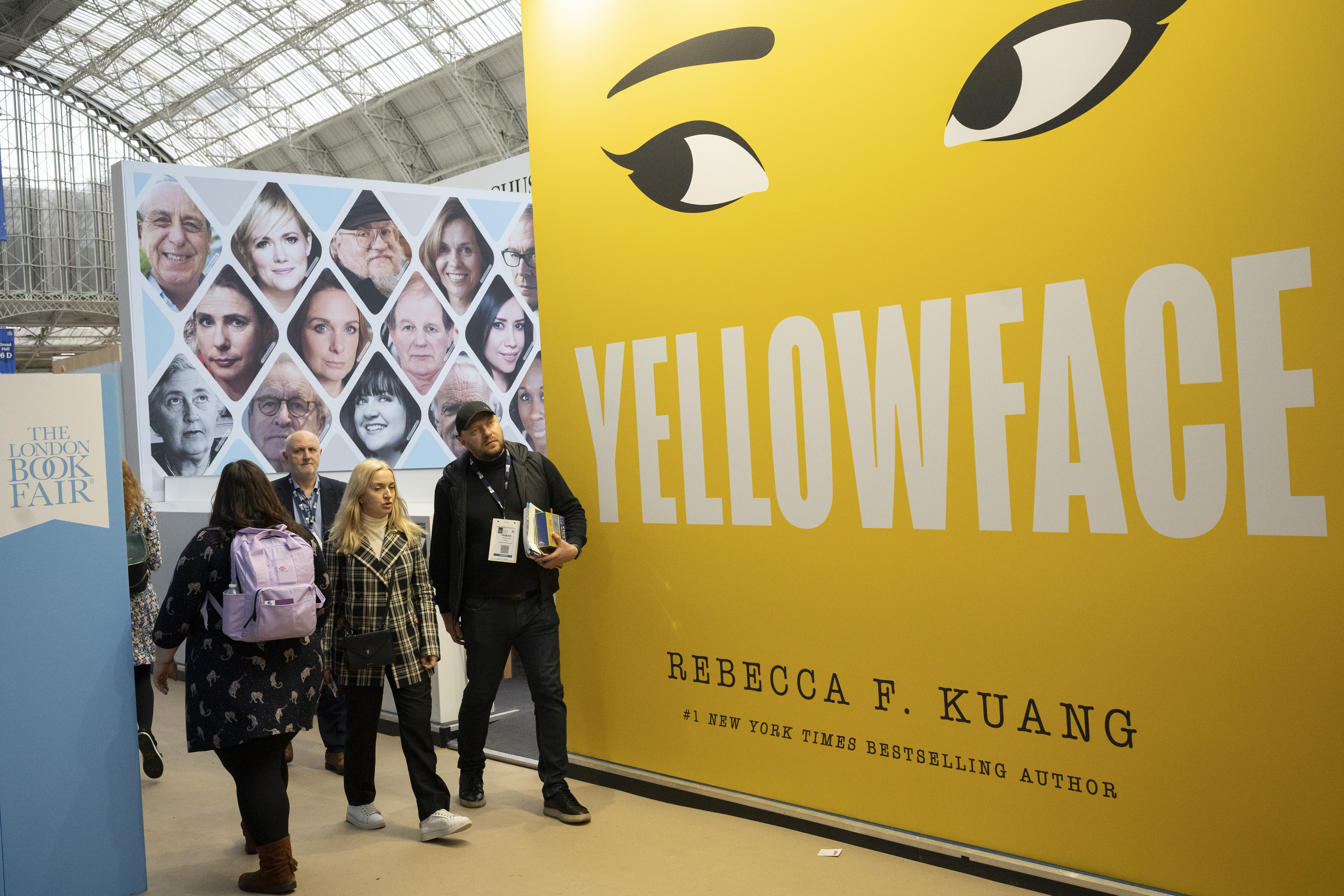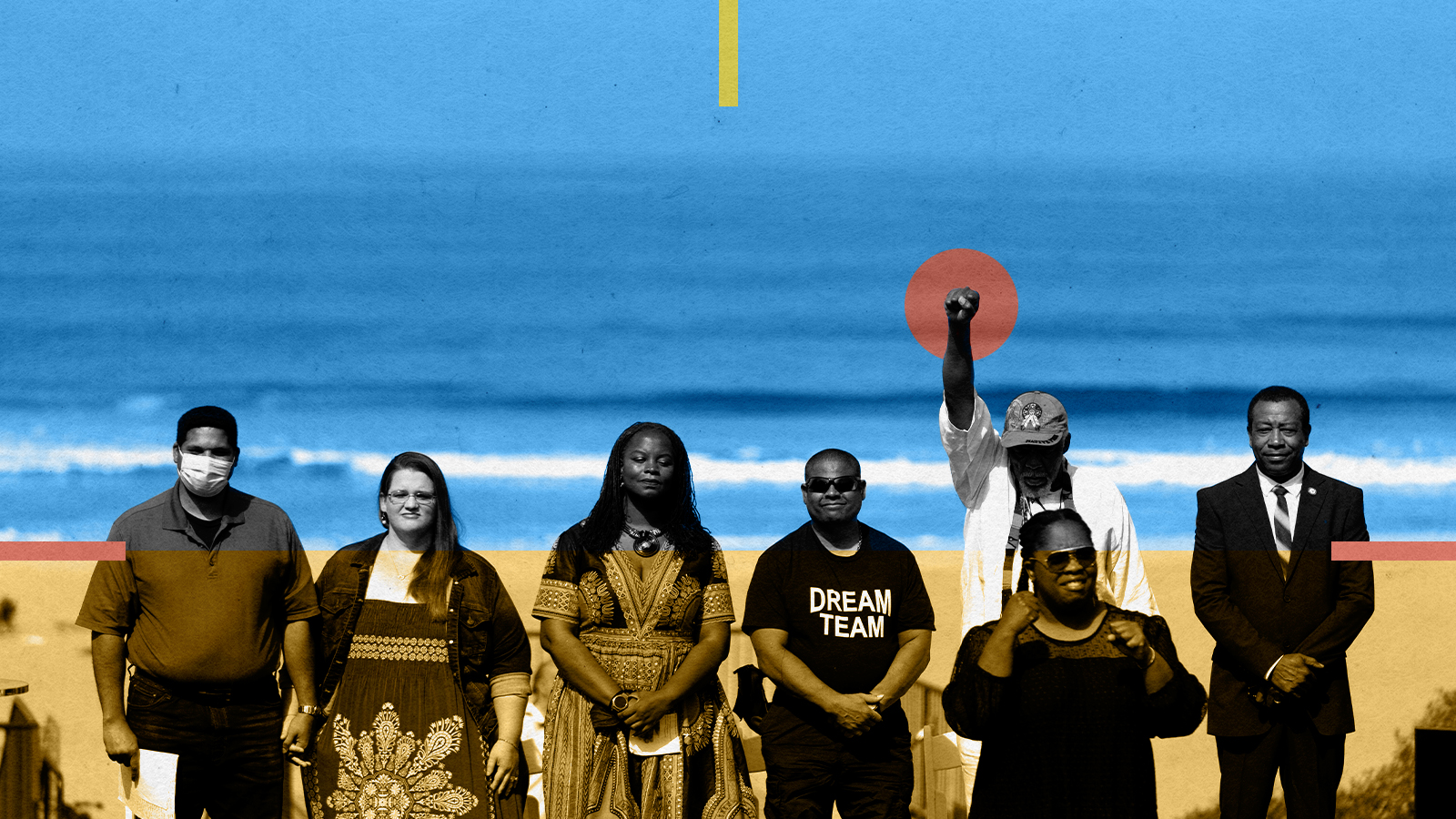R.F. Kuang's 'Yellowface': a biting satire of the publishing industry
The novel is an examination of cultural appropriation, racism and tokenism in the publishing industry


A free daily email with the biggest news stories of the day – and the best features from TheWeek.com
You are now subscribed
Your newsletter sign-up was successful
R.F. Kuang is not new to the literary scene. She is already a bestselling fantasy author, as well as a doctoral student in East Asian languages and literature at Yale. "Yellowface," Kuang's fifth novel and first foray into literary fiction, is being hailed as a biting satire of the publishing industry.
The story follows June, a 20-something white author struggling to revive her writing career while harboring envy of her frenemy and fellow writer, Athena Liu. Whereas June's debut flopped, Athena has had runaway success as the latest Asian-American author of note. After Athena's accidental death, June steals her unreleased manuscript and passes it off as her own.
The novel is "a breezy and propulsive read" and "a satirical literary thriller that's enjoyable and uncomfortable in equal measure," author Amal El-Mohtar wrote in a review for The New York Times. "Yellowface" is also "the most granular critique of commercial publishing I've encountered in fiction," El-Mohtar added, "and seeing the cruel, indifferent vagaries of one's industry so ably skewered is viciously satisfying."
The Week
Escape your echo chamber. Get the facts behind the news, plus analysis from multiple perspectives.

Sign up for The Week's Free Newsletters
From our morning news briefing to a weekly Good News Newsletter, get the best of The Week delivered directly to your inbox.
From our morning news briefing to a weekly Good News Newsletter, get the best of The Week delivered directly to your inbox.
Kuang fully intends to make readers uncomfortable in her exploration of the pervasiveness of cultural appropriation, racism, and tokenism in the publishing industry, based on her own experiences as a published author. "Reading about racism should not be a feel-good experience," Kuang said in a separate interview with the Times. "I do want people to be uncomfortable with the way that they're trained to write about and market and sell books, and be uncomfortable with who's in the room, and how they're talking about who's in the room."
The meta satire is a "strong commentary on the exploitation and rigors writers face under the pressure to be successful," writer, editor, and literary critic Keishel Williams wrote for NPR. The book is a "multi-layer, complex conversation that tackles a few things about the publishing industry at once." Cultural appropriation, a central theme, "galvanizes the entire story and at various angles challenges the idea of what kind of stories writers are allowed to write given their race, gender, sexual orientation, etc.," Williams said."This type of interrogation of the coopting of culture and stories for capital gain is well-received."
A free daily email with the biggest news stories of the day – and the best features from TheWeek.com
Theara Coleman has worked as a staff writer at The Week since September 2022. She frequently writes about technology, education, literature and general news. She was previously a contributing writer and assistant editor at Honeysuckle Magazine, where she covered racial politics and cannabis industry news.
-
 Political cartoons for February 15
Political cartoons for February 15Cartoons Sunday's political cartoons include political ventriloquism, Europe in the middle, and more
-
 The broken water companies failing England and Wales
The broken water companies failing England and WalesExplainer With rising bills, deteriorating river health and a lack of investment, regulators face an uphill battle to stabilise the industry
-
 A thrilling foodie city in northern Japan
A thrilling foodie city in northern JapanThe Week Recommends The food scene here is ‘unspoilt’ and ‘fun’
-
 Code-switching: the origins, purpose and pitfalls
Code-switching: the origins, purpose and pitfallsThe Explainer Balancing your identity and respectability politics sometimes means taking on a different tone or behavior to fit in
-
 How the Grenfell tragedy changed the UK
How the Grenfell tragedy changed the UKfeature Six years on since the government vowed to ‘learn lessons’ has sufficient progress been made?
-
 Netflix's Cleopatra controversy, explained
Netflix's Cleopatra controversy, explainedSpeed Read Egypt's government objects to a Black actress playing the part of the Egyptian queen
-
 'Offensive' books that have been rewritten
'Offensive' books that have been rewrittenThe Week Recommends From "Charlie and the Chocolate Factory" to "James Bond"
-
 Elon Musk laments that Scott Adams' Dilbert is 'legit funny and insightful.' Cartoonists disagree.
Elon Musk laments that Scott Adams' Dilbert is 'legit funny and insightful.' Cartoonists disagree.Speed Read
-
 The controversy around Splash Mountain
The controversy around Splash MountainSpeed Read Why the iconic theme park ride is being entirely reimagined for a new era
-
 The story behind Bruce's Beach
The story behind Bruce's BeachSpeed Read The Bruce family fought for years to get their beach back from Los Angeles County. Now they want to sell it.
-
 US culture war: why book bans are back
US culture war: why book bans are backfeature Hundreds of titles targeted in school libraries stand-off between ‘traditionalists’ and ‘left-wing’ rivals
